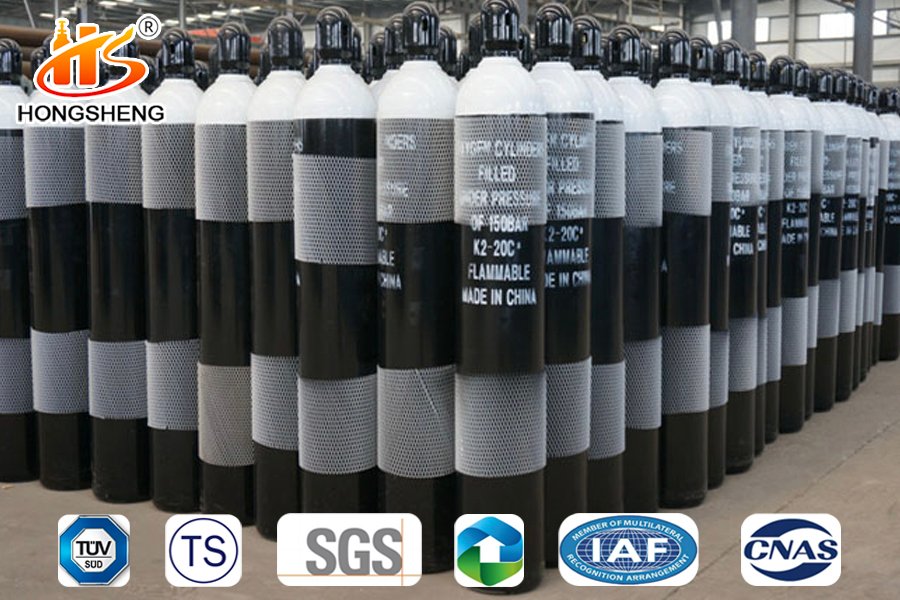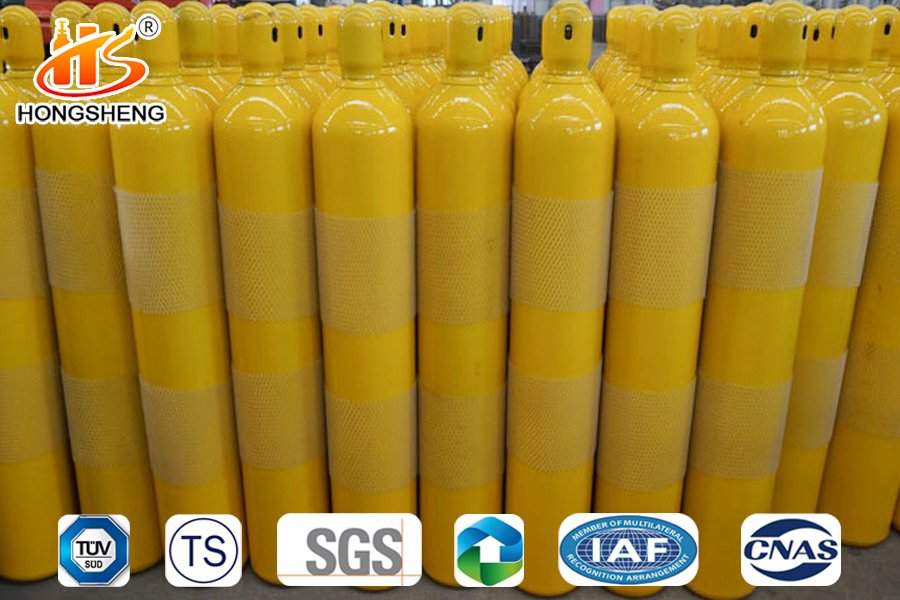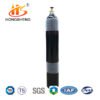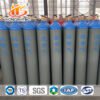
Tips til gassikkerhed:
1 、 Lattergas, almindeligvis kendt som lattergas, er en narkotisk gas, der er meget brugt i medicinsk kirurgi. Men når lattergas trænger ind i blodbanen, kan det give kroppen iltmangel, og langvarig indånding kan forårsage højt blodtryk, besvimelse og endda et hjerteanfald. Desuden kan langvarig udsættelse for sådanne gasser også forårsage anæmi og skade på centralnervesystemet.
2. Ved indånding af lattergas: Forlad hurtigt stedet for at få frisk luft. Hold luftvejene åbne. Giv ilt, hvis vejrtrækningen er vanskelig. Hvis vejrtrækningen stopper, skal du straks give kunstigt åndedræt. Gå til en læge.
3. Beskyttelse af åndedrætsorganerne: Generelt er der ikke behov for særlig beskyttelse. Brug en selvansugende filtergasmaske (halvmaske), når du udsættes for høje koncentrationer.
Brug cylinder: 40L eller 50L
Shandong Hongsheng Pressure Vessel Co, Ltd. er villig til at være din langsigtede partner og chef for cylindersikkerhed og i fællesskab eskortere din cylindersikkerhed.
Kemisk formel: N2O
Molekylvægt: 44.013
CAS-nr.: 10024-97-2
EINECS-nr.: 233-032-0
Massefylde: 1, 8 kg/m3
Smeltepunkt: 91 ℃
Kogepunkt: 88 ℃. -
Brydningsindeks: 1.469
Kritisk temperatur: 36.5℃
Kritisk tryk: 7.26MPa
Udseende: Farveløs og sød gas
Opløselighed: let opløseligt i vand, opløseligt i ethanol, ether, koncentreret svovlsyre
Dinitrogenoxid er en farveløs, sød gas, der brænder under visse forhold, men er stabil ved stuetemperatur, mildt bedøvende og fremkalder latter.
Dinitrogenoxid er en farveløs, sød gas, der brænder under visse forhold, men er stabil ved stuetemperatur, mildt bedøvende og fremkalder latter.
Funktioner og anvendelser
Indånding af ren gas kan hurtigt forårsage anæstesi og asfyksi, så den skal blandes med ilt. Kort induktionstid.
Hvis vedligeholdelsesdosis ikke suppleres, er hurtig opvågning mulig. Det kan bruges som vedligeholdelsesbedøvelse til heste, drøvtyggere, hunde og katte.
Fødevareforarbejdning AIDS
I fødevareindustrien som opskumningsmiddel og fugemasse.
Udsendelse om nødbehandling

Indånding: Flyt hurtigt væk fra stedet og ud i frisk luft. Hold luftvejene åbne. Giv ilt, hvis vejrtrækningen er vanskelig. Hvis vejrtrækningen stopper, skal du straks give kunstigt åndedræt. Gå til en læge.
Åndedrætsværn: Generelt er der ikke behov for særlig beskyttelse. Brug en selvansugende filtergasmaske (halvmaske), når du udsættes for høje koncentrationer.
Øjenbeskyttelse: Generelt er der ikke behov for særlig beskyttelse.
Fysisk beskyttelse: Brug almindeligt arbejdstøj.
Håndbeskyttelse: Brug kemikalieresistente handsker.
Anden beskyttelse: Undgå indånding af høje koncentrationer. Når der arbejdes i tanke, begrænsede rum eller andre områder med høj koncentration, skal nogen overvåge dem.
























